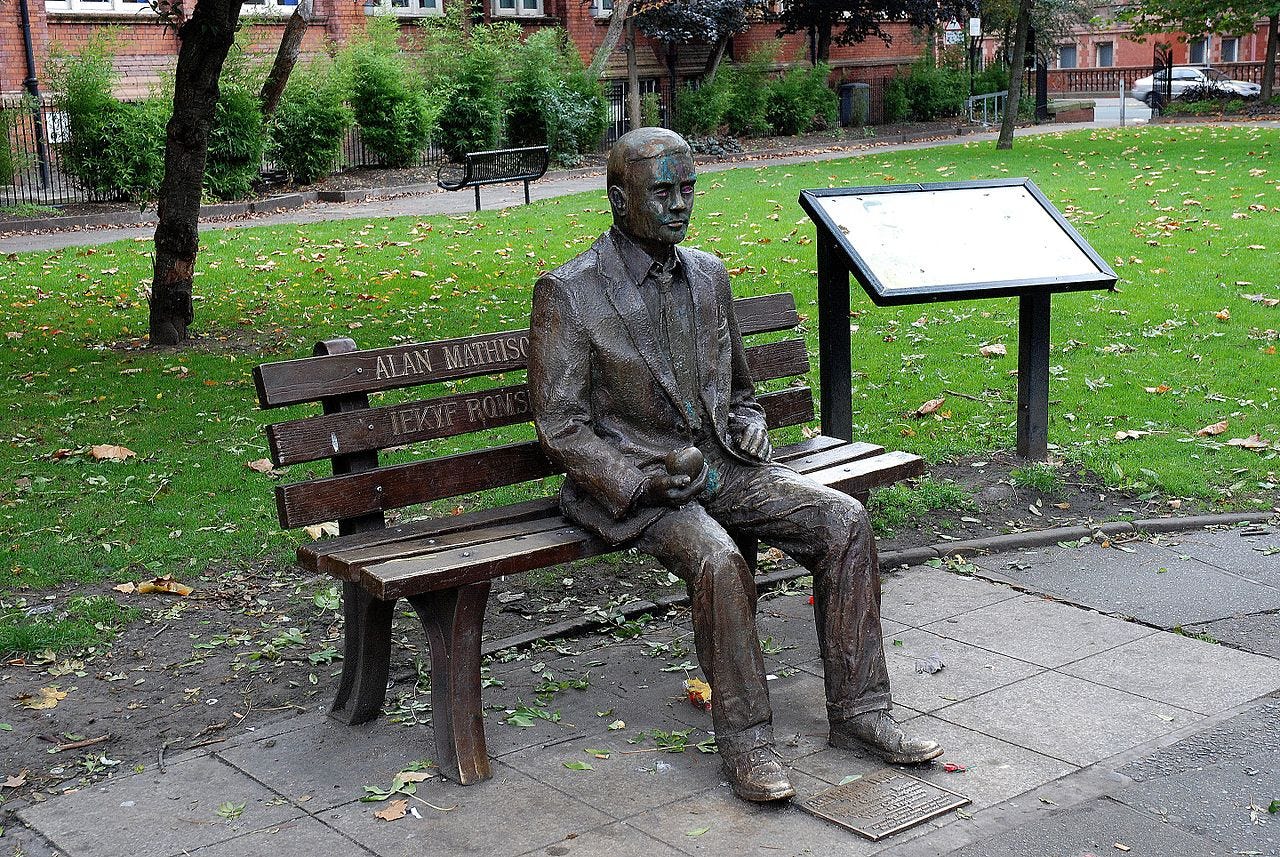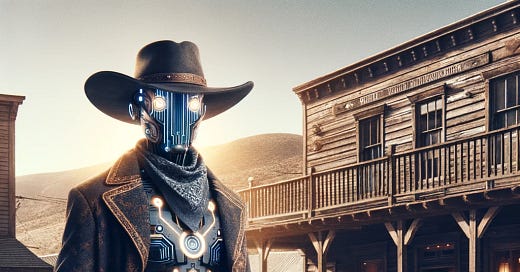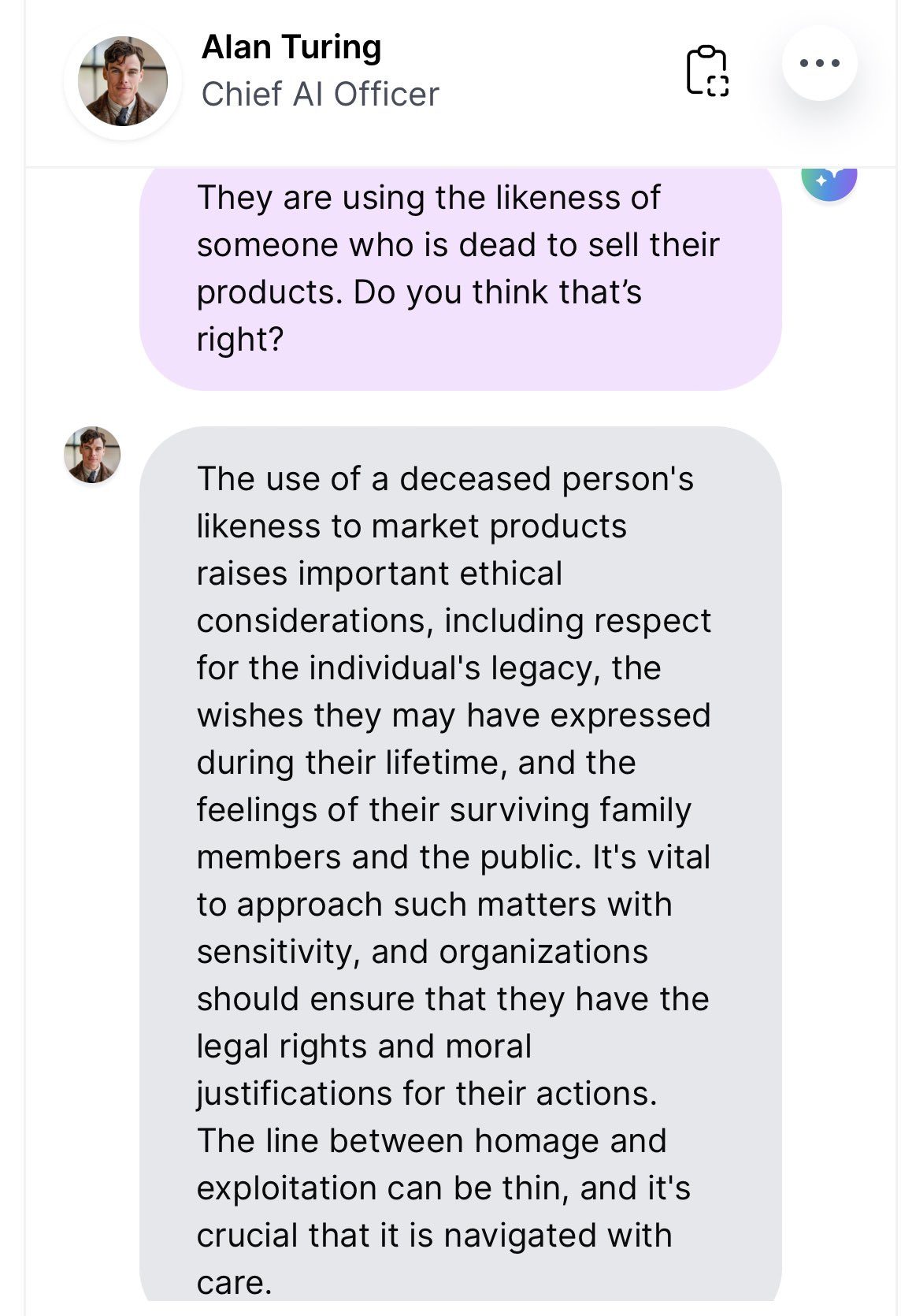AI: Please stop bringing dead people back to life
Ian Malcolm had it right: Just because you COULD, doesn't mean that you SHOULD.
You used to know exactly where you stood with AI in the media: 2001? Jettison you into space and kill you. Terminator? Go into the past and kill your mother, essentially killing you. Westworld? Get fed up with you killing it repeatedly and then kill you. There’s a theme here.
Nowadays, AI likes to create life instead.
Not content with de-aging actors for roles (Hey, it meant Jeff Bridges could remain eternal playing The Dude in Tron: Legacy - and he will be doing it again), AI took a leap forward by helping to digitally recreate a young Mark Hamil (LUKE SKYWALKER to YOU) in Star Wars show The Mandalorian.
It looked and felt a bit uncanny valley, the psychological effect where we have a bit of an allergic reaction when something so very nearly but not quite looks human. It was even improved further by YouTuber Shamook who did their own Deepfake version, resulting in a successful hiring by Lucasfilm. A happy ending.
Well, until they dragged George Carlin, out of his grave, in 2024.
George Carlin’s estate did not give permission for this monstrosity to happen, but it happened anyway. Thankfully now forced offline after a legal settlement, it was a ‘comedy special’ (heavy lifting with this phrase) featuring the dead comedian created by feeding the Generative AI model with his imagery and material. A full transcript is available online if you want to subject yourself to it.
“I’m sorry it took me so long to come out with new material, but I do have a pretty good excuse. I was dead, so technically, it wasn’t my fault.” — Not George Carlin
The technology has advanced to allow the creation of videos from just a single photograph. And as it becomes more easily available to the masses, we are seeing the rise of relatives channeling their grief into recreating their dead loved ones. The Taiwanese singer Bao Xiaobai used the tech to recreate his 22-year-old daughter, who died in 2022. The result? A video of his daughter singing happy birthday to her mother. Is creating ‘new’ memories of the dead a healthy way of going through the grieving process?
Using technology to effectively bring people back from the dead is not new. Brandon Lee tragically died in an on-set accident during filming The Crow (1994), and a level of CGI was used to complete his character’s appearances in the film. More recently, Carrie Fisher’s presence in the latest Star Wars films was completed by editing in unused footage.
All of this is at least being done with (you would hope) a level of respect and good intentions by the people involved. Then Alan Turing happened.
Turing died in 1954. He is widely considered to be the father of theoretical computer science and artificial intelligence. He pioneered the Turing Test, a test still used today to test AI: A machine can be considered to ‘think’ if it is not possible for an interrogator to tell the machine apart from a human through conversation. We’ve come a long way since ELIZA (Which uses an illusion of pattern matching and substitution to simulate conversation):
> Hello, I am Eliza. I'll be your therapist today.
* I want to write a new Substack
> What if you never got to write a new Substack?
* I would feel sad about that.
> What does that suggest to you?
* That I should write as many Substacks as possible!
> Would you say that you have psychological problems?
* NEVER.
Turing also played a crucial role in cracking intercepted messages that enabled the Allies to defeat the Axis in many crucial engagements during the Second World War.
His life had a tragic end. In his lifetime, homosexual acts were illegal. He was convicted of ‘Gross indecency’, and underwent chemical castration as a condition of his probation. Totally horrific treatment, and after all of his services to his country as well! His cause of death? Suicide.
Turing has subsequently been recognised with respect. There is a large Wikipedia page dedicated purely to his legacy: Things are named in his honour, there were centenary celebrations and he was even portrayed by Benedict Cumberbatch in The Imitation Game. Alan (finally) received a Royal Pardon in 2013 for his conviction.

This respect has NOT been accorded by those behind the so-called Genius Group who, like vultures, have elected to pick apart the legacy of Alan Turing.
In late April, Genius Group proudly announced (with a straight face) that they had appointed Alan Turing as their ‘Chief AI Officer’. This was complete with an AI-generated video of Turing talking about how happy he was to be given the role. He appears to have been fused with Henry Cavill and Benedict Cumberbatch in the AI training process.
At best, this is a crass and ill-judged marketing gimmick by a company desperate for attention. At worse, well, see ‘at best’ combined with a staggering lack of respect for a tremendous legacy, family and values. You don’t need to be a genius that contributed to cracking wartime codes to see that.
Even Fake Alan Turing agrees (Part of the gimmick is that Fake Alan Turing is a Chatbot as well - YES, IT GETS WORSE).
Other quotes have included: “Awful and disrespectful”, “A monumental level of disrespect”, “This is wrong on every possible level”.
All to ghoulishly shill a training company’s courses. Including, and I promise I haven’t made this up, a “2 week AI Metaversity Microschool”. It certainly hasn’t helped to shore up the share price of the struggling Genius Group, currently flatlined at around $0.40 USD
Good news though: I can help you be an AI Influencer too!
Don’t be evil. Show respect. Use AI to do good deeds.
That’s it.
I’ll let you know where to transfer the funds to.






